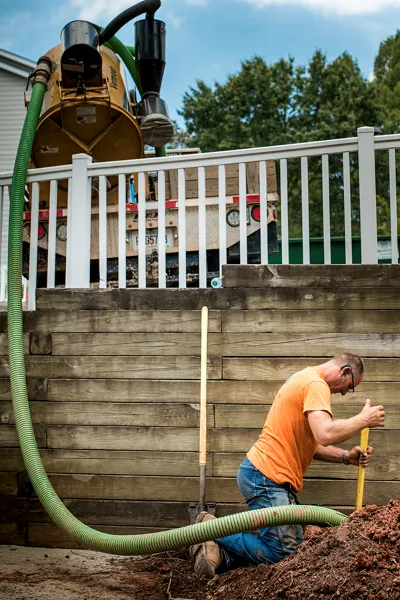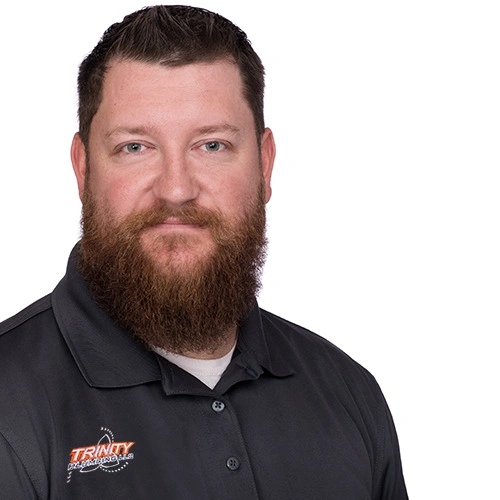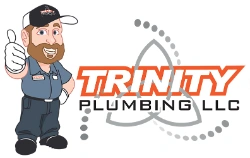
As a business owner, you know that time is money. Plumbing problems can be a real headache, disrupting your operations and costing you valuable time and resources. From leaky pipes and drainage issues to water heater malfunctions and gas line problems, commercial plumbing issues can arise at any time and cause significant damage if not addressed promptly. That’s why it’s crucial to have a plan in place for dealing with plumbing problems before they occur.
Don’t Let Plumbing Problems Sink Your Business: 7 Common Commercial Plumbing Problems & Solutions You Need to Know
- Sewer Line Problems
- Backflow Prevention Problems
- Gas Line Problems
- Commercial Water Heater Problems
- Commercial Drain Problems
- Underground Pipe Problems
- Leaky Pipe Problems
Let’s discuss each of those commercial plumbing issues, their potential consequences, and effective solutions to keep your business running smoothly.
Sewer Line Problems:
ISSUE with Sewer lines
Commercial sewer lines can face a variety of issues, including clogs, cracks, corrosion, and damage caused by tree roots. Large commercial properties typically have more complex plumbing systems, and sewer line problems can be particularly challenging to diagnose and repair.
CONSEQUENCES of Sewer Line Problems
Clogged drains and sewers can cause unpleasant odors and can lead to sewage backup, causing damage to the property and potentially harming the health of employees and customers.
If left unaddressed, these problems can cause significant damage to a commercial property and disrupt business operations. It is important for business owners to be aware of the warning signs of sewer line issues and address them promptly to avoid costly and disruptive consequences.
If not resolved promptly, this issue can lead to costly repairs and potential legal liabilities for the business.
SOLUTIONS for Sewer Line Problems
The solutions for commercial sewer line problems depend on the specific issue.
One solution for clogs or blockages is hydro jetting, which uses high-pressure water to clear the line. For tree roots (root intrusion) or other obstructions, a plumbing professional may use a rooter to clear the blockage.
In more severe cases, the damaged section of the sewer line may need to be excavated and replaced. No dig trenchless sewer repair or replacement may be an option – From inside the pipe, a structural repair is made using strong and durable epoxy. This ‘pipe within a pipe‘ will be as hard or harder than the original pipe being replaced.
Regular maintenance, such as inspections and drain cleaning, can also help prevent sewer line problems from occurring in the first place. A plumbing professional can recommend the best solution for your specific issue and provide ongoing maintenance to keep your sewer line functioning properly.
Backflow Prevention Problems:
ISSUE with Backflow Prevention Devices:
Backflow can occur when there is a sudden change in water pressure, causing contaminated water to flow back into the clean water supply. Backflow prevention devices are required by law in many commercial settings, and proper installation and maintenance is crucial to prevent potential health hazards.
CONSEQUENCES of Backflow Prevention Problems:
Backflow issues can cause contaminated water to flow back into the potable water supply, posing a serious health risk to employees and customers. This can result in legal liabilities and damage to the reputation of the business.
SOLUTIONS for Backflow Prevention:
There are several solutions for preventing backflow in commercial plumbing systems. The first step is to have a commercially licensed plumber install a backflow prevention device. This device can either be a check valve or an air gap that prevents water from flowing back into the main water supply. It is important to have this device installed in the correct location to ensure it is effective.
Additionally, regular maintenance and inspections of the backflow prevention device can help ensure it is working properly.
Other preventative measures include avoiding pouring hazardous chemicals down drains, properly disposing of grease and other waste, and ensuring that any potential sources of backflow are properly isolated. Regular testing and certification of the backflow prevention device is also necessary to ensure compliance with local regulations and to maintain the safety of the water supply.
Gas Line Problems:
ISSUE with Gas Lines
Commercial buildings often use natural gas for heating, commercial appliances, and other functions; and problems with gas lines can pose a serious safety risk. Only licensed professionals should handle gas line installation and repair.
CONSEQUENCES of Gas Line Issues
Consequences of gas line issues in commercial buildings can be severe, ranging from gas leaks and explosions to carbon monoxide poisoning. As such, it’s crucial to address any gas line problems immediately to ensure the safety of employees and customers.
SOLUTIONS for Gas Line Issues
A licensed professional with experience in commercial gas line installation and repair should handle any gas line issues.
Routine inspections and maintenance can also help prevent issues from occurring. Business owners should schedule regular inspections of their gas lines to ensure everything is functioning correctly.
Businesses should also educate their employees on gas line safety, including how to recognize potential gas leaks and what to do in case of an emergency.
By taking a proactive approach to gas line maintenance and safety, business owners can help prevent accidents and protect their property, employees, and customers.
Commercial Water Heater Problems:
Commercial water heaters, commercial expansion tanks, and commercial pressure reducing valves are typically much larger and more complex than residential models; and repairs or replacement can be challenging and expensive.
ISSUES with Commercial Water Heaters
- Insufficient hot water: This can be caused by a variety of issues, such as a malfunctioning thermostat or a buildup of sediment in the tank.
- Leaks: Over time, corrosion and wear and tear can cause leaks in the tank or in the connections to the water supply or gas line.
- Pilot light problems: If the pilot light goes out or won’t stay lit, the water heater won’t be able to heat the water.
- Sediment buildup: Over time, minerals and sediment can accumulate in the tank, reducing the efficiency of the water heater and potentially causing damage.
- Pressure relief valve issues: The pressure relief valve is designed to prevent the water heater from building up too much pressure, but if it’s faulty, it can lead to dangerous pressure buildup.
- Thermostat problems: A malfunctioning thermostat can prevent the water heater from heating the water to the desired temperature, or cause it to overheat and potentially damage the tank.
CONSEQUENCES of Commercial Water Heater Problems
Malfunctioning water heaters can lead to a lack of hot water, which can be inconvenient for employees and customers. In extreme cases, malfunctioning water heaters can also lead to leaks or flooding, causing significant damage to the property.
SOLUTIONS for Commercial Water Heaters
There are several solutions to common commercial water heater problems.
First, regular maintenance is crucial to keep the system running smoothly. This includes draining and flushing the water heater tank regularly to remove sediment buildup, checking and replacing anodes to prevent rust, and inspecting and cleaning the burner assembly to ensure efficient operation.
Second, upgrading to a newer, more energy-efficient model can save money on utility bills and reduce the risk of breakdowns.
Third, having a licensed plumber install a pressure reducing valve can prevent excessive pressure from damaging the tank or causing leaks.
Finally, having a professional commercial plumber diagnose and repair any issues promptly can prevent further damage and extend the lifespan of the water heater.
Commercial Drain Problems:
ISSUES with Commercial Drains
Commercial buildings generate a lot of wastewater, and problems with drainage can lead to backups, flooding, and other issues that can disrupt business operations.
There are several issues that can arise with commercial drains, including:
- Clogs: Over time, debris such as grease, food particles, hair, and soap scum can build up in drains, leading to clogs. Clogs can cause water to back up, which can be inconvenient and unsanitary.
- Foul odors: Drains can emit unpleasant odors, particularly if there is a buildup of organic matter or if the drain is not being used regularly. These odors can be off-putting to employees and customers.
- Slow drainage: If water is slow to drain, it can be a sign of a clog or a more serious issue such as a damaged or collapsed pipe.
- Backups: Backups occur when wastewater flows back up through the drain and into sinks, toilets, or other fixtures. This can be caused by clogs or more serious issues such as a collapsed sewer line.
- Structural damage: If commercial drains are not properly installed or maintained, they can be prone to structural damage such as cracks, leaks, or collapsed pipes. This can lead to water damage and costly repairs.
- Health risks: If drains are not properly maintained, they can become breeding grounds for harmful bacteria and other pathogens. This can pose a health risk to employees and customers.
CONSEQUENCES of Commercial Drainage Issues
Consequences of drainage issues in commercial buildings can include damage to property, health hazards, and business interruptions.
For instance, if there is a sewage backup, it can lead to unpleasant odors and the spread of harmful bacteria, which can create an unhealthy and uncomfortable work environment.
Additionally, water damage can lead to structural issues, electrical malfunctions, and equipment failure, all of which can be costly and time-consuming to repair.
SOLUTIONS for Commercial Drainage Issues
It’s important to address these issues promptly to avoid costly repairs and potential health hazards. To prevent drainage issues in your commercial kitchens and restrooms, regular inspections and maintenance are essential. Business owners can hire professional plumbing services to inspect the plumbing system and detect any potential issues early on.
They can also invest in preventative measures like drain cleaning and hydro jetting to ensure that the pipes remain clear and free of clogs.
Additionally, educating employees on proper waste disposal can also help reduce the risk of drain blockages.
By taking these steps, business owners can avoid costly repairs and maintain a safe and functional workspace for employees.
Problems with Replacing or Repairing Pipes Under Sensitive Landscaping or Parking Lots:
ISSUES with REPAIRING/REPLACING Pipes Under Commercial Properties
Replacing or repairing pipes under commercial properties can be a complex and challenging process. The biggest issue is that the work can cause disruptions to business operations, especially if the pipes are located under sensitive areas such as parking lots, landscaping, or buildings. This can lead to delays and extra expenses if the work is not done correctly or if there are unexpected problems that arise during the process.
Another issue is that there may be restrictions or regulations in place that need to be followed, such as obtaining permits, complying with building codes, and adhering to environmental guidelines. Failure to meet these requirements can result in fines or legal issues for the business owner or plumbing contractor.
CONSEQUENCES of Underground Pipe Problems
Excavating and repairing broken underground pipes can be time-consuming and expensive, causing disruption to the operations of the business.
The consequences of not addressing issues with pipes under commercial properties can be severe. If left unchecked, leaks and other problems can cause damage to the property itself, as well as to the surrounding areas. For example, if a pipe under a parking lot is leaking, it can cause damage to the asphalt and the surrounding landscaping. This can result in costly repairs and downtime for the business. Additionally, if the issue is not addressed promptly, it can lead to more serious problems down the line, such as foundation damage or structural issues.
In addition to the physical damage, leaks and other pipe problems can also result in increased utility bills and water waste. Leaks can cause water to be wasted unnecessarily, which can lead to higher bills and a negative impact on the environment.
Ignoring the issue can lead to property damage and costly repairs. Don’t ignore warning signs that you have an underground pipe problem – little problems often turn into BIG problems. Overall, it is important for businesses to address any issues with their pipes promptly and to work with experienced professionals who can provide effective solutions.
SOLUTIONS to Replace/Repair Underground Pipe
When underground pipes need to be repaired or replaced in areas where traditional excavation methods are not feasible due to limited access or the presence of sensitive landscaping, directional boring can be used to create a small entry and exit hole to install new pipes without disturbing the surrounding area. This method can save time, money, and reduce the impact on the environment.
One solution is to use directional boring, which involves drilling a hole underground and using a guided drilling mechanism to create a path for the new pipe without disrupting the surface above. This method is less invasive and can help preserve sensitive landscaping and pavement.
Replacing or repairing pipes under a parking lot or sensitive landscaping can be a challenging task that requires specialized equipment and expertise. An alternative solution is to use pipe lining (trenchless pipe repair & replacement), where a new pipe is installed within the existing damaged pipe. This method does not require digging or excavation, and it is less disruptive to the surrounding area. It is important to consult with a professional plumber to determine the most appropriate solution for the specific situation.
Preventative Maintenance: By taking a proactive approach to pipe repair and replacement, businesses can save money on their utility bills, reduce their environmental impact, avoid costly damage and downtime, and ensure that their plumbing systems are functioning at optimal levels.
Leaky Pipe Problems:
ISSUES with Pipes Leaking
One issue that can cause a leaky pipe is corrosion. Over time, pipes can deteriorate due to exposure to water, chemicals, and other elements, leading to holes or cracks in the pipes that allow water to leak out. Other potential causes of leaky pipes include poor installation, physical damage to the pipes, and changes in temperature or pressure within the plumbing system.
CONSEQUENCES of Leaking Pipes
Leaky pipes can cause water damage to the building and its contents, leading to mold growth and other issues. Ignoring leaky pipes can result in significant water damage, which can be expensive to repair and can impact the operations of the business.
SOLUTIONS for Leaking Pipes
The solutions to leaky pipes depend on the severity and cause of the leak. Here are some possible solutions:
- Pipe repair: If the leak is caused by a small crack or hole in the pipe, it may be possible to repair the damaged section of the pipe using a patch or sealant.
- Pipe replacement: If the damage to the pipe is more extensive, it may be necessary to replace the entire section of the pipe.
- Regular maintenance: Regular inspections and maintenance can help detect leaks early on and prevent them from becoming larger problems. This can include checking for signs of corrosion, loose connections, or other potential issues.
- Proper installation: Ensuring that pipes are installed correctly in the first place can prevent future leaks. This includes using high-quality materials and following best practices for installation.
- Pressure regulation: High water pressure can put stress on pipes and increase the risk of leaks. Installing a pressure regulator can help reduce the risk of leaks and other plumbing issues.
Commercial Plumber for Commercial Plumbing Problems
Overall, ignoring these commercial plumbing issues can lead to a range of consequences, including damage to property, legal liabilities, reduced productivity, revenue loss, and damage to the reputation of the business. It is important for businesses to address these issues promptly and hire a professional plumber with experience in commercial plumbing services to ensure that they are resolved properly.







